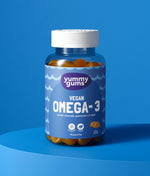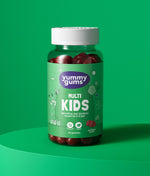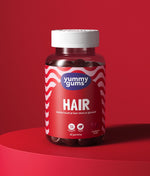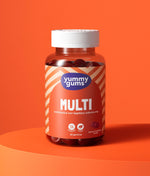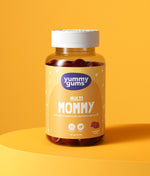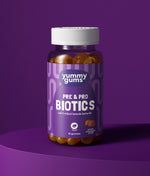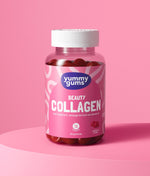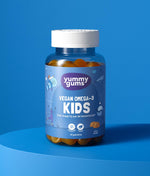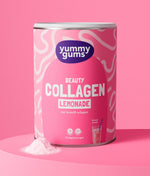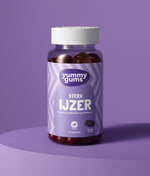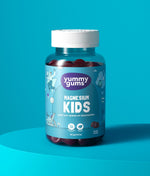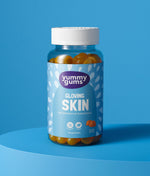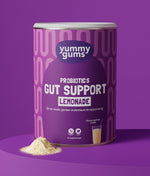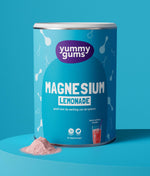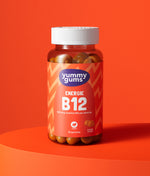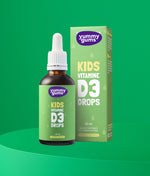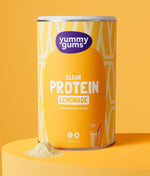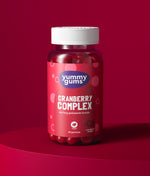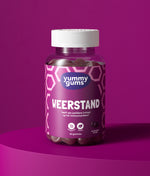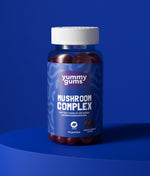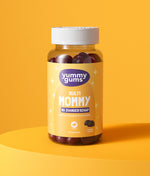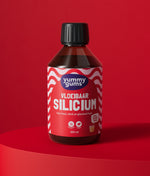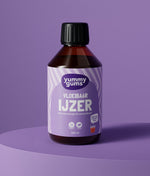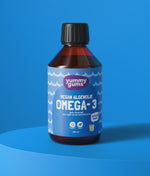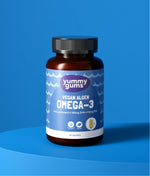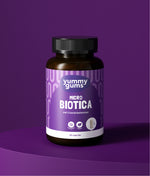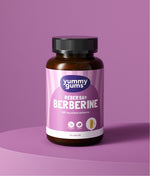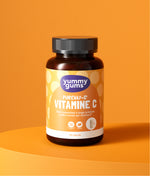Collagen: What is it and what does it do?
Vitamines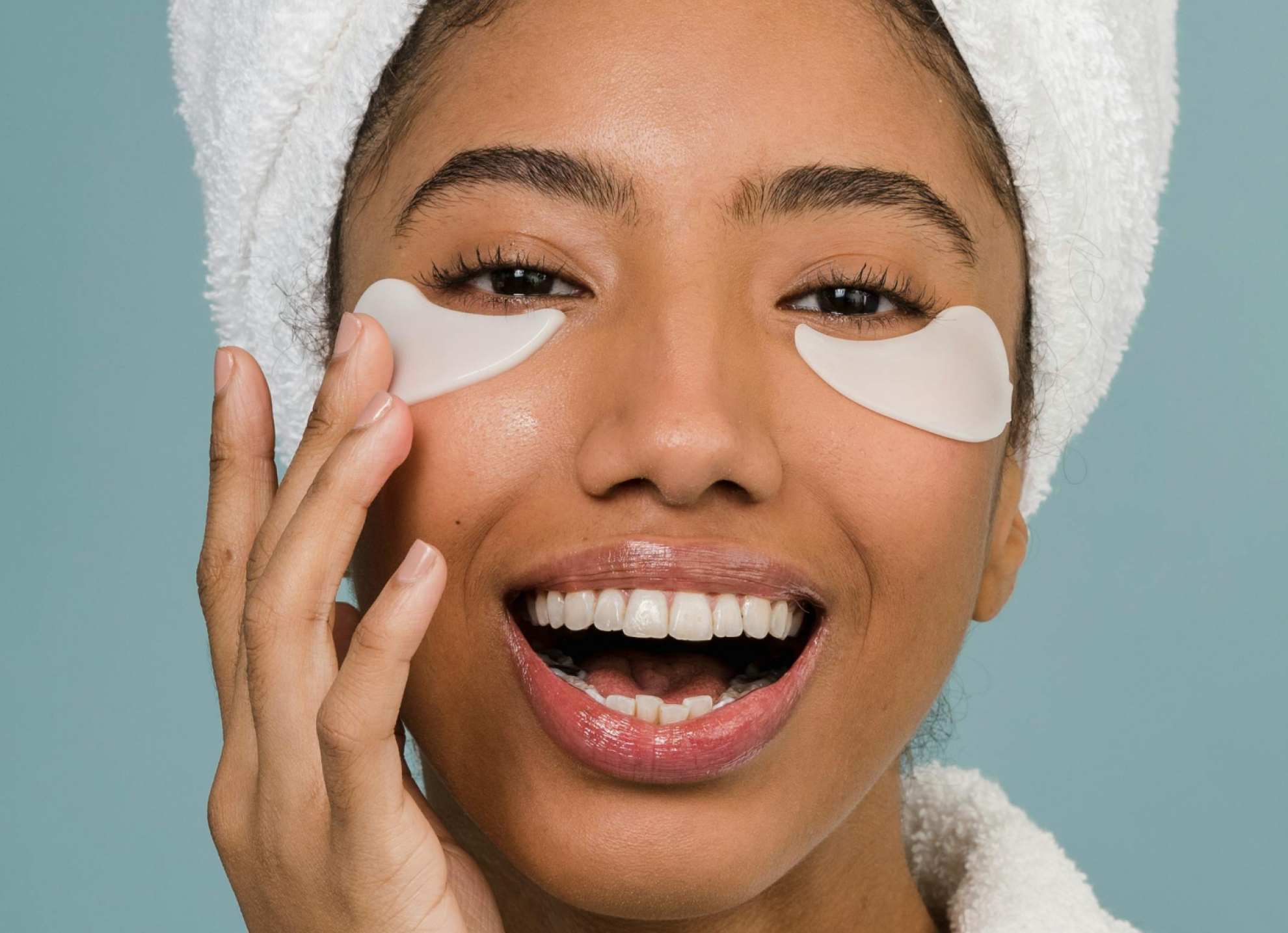
Supplement trends are all over the place these days, and collagen hasn't gone unnoticed. There's been a lot of talk about this topic lately, and many influencers are featuring this supplement in powder or pill form on their profiles. But why this obsession with collagen, and what is it exactly? We'll tell you the ins and outs in this blog post.
What is collagen?
About 70% of the loose connective tissue in human skin consists of collagen, a protein important for its structure and strength. It's not only found in human skin, but also in various animals. Collagen is composed of various amino acids. Amino acids are the building blocks that form proteins in living organisms. Of these, proline, glycine, and hydroxyproline are the most important. Together, these amino acids account for the largest contribution.
Collagen is responsible for, among other things, the elasticity and firmness of your skin. Around the age of 25, collagen production in your body declines. This means that your skin becomes increasingly loose and less elastic with age.
The effect of collagen
Collagen is produced by our own body and provides strength to the hair, nails, bones, muscles, joints and skin, among other things.
Your skin is made up of several layers, the outermost layer of which is made up of skin cells. Beneath this layer are elastin and collagen, which together ensure firm, supple, and elastic skin.
In addition, collagen plays a role in the production, construction, and preservation of cartilage. Collagen is also found in your bone tissue, where it contributes to its hard, tough, and brittle structure.
Negative factors
There are several factors that negatively affect the amount of collagen in your body.
UV radiation
You often hear that the sun causes wrinkles; it's even the number one cause of skin aging. But did you know that this is partly because the sun's rays can cause DNA damage in the cells that produce collagen? So always keep applying SPF!
Sugar
Sugar can bind to proteins, creating harmful substances. These harmful substances then bind to collagen, making it less strong and elastic. This process is called glycation. Try to avoid sugar in your diet as much as possible and choose foods that support collagen production.
Stress
Stress isn't just bad for your heart; it's also bad for your skin. Stress can increase the penetration of harmful substances into our skin, and levels of cortisol, your stress hormone, rise. Cortisol slows collagen production, which accelerates skin aging.
Smoking
We all know that smoking is bad for you. Not just for your lungs, but also for your skin. Smoking reduces the amount of oxygen and nutrients reaching your skin. Nicotine also damages the collagen in your skin and breaks down vitamin C, which further inhibits the production of your skin's own collagen.
Caffeine and alcohol
These two products are considered toxins by your body and are therefore broken down as quickly as possible by the liver. Caffeine also causes an increase in cortisol, another stress hormone, which inhibits collagen production. Alcohol is high in sugar and dries out the skin, reducing collagen production.
Types of collagen
There are more than 28 different types of collagen in total. Of these, types 1 through 4 are the most important.
Type I occurs in:
Skin
Bones
Connective tissue
Tendons
Ligaments
Fascia
Blood vessels
Cartilage
Type II occurs in:
Intervertebral discs
Ribs
Nose
Larynx
Trachea
Bronchial branches
Type III occurs in:
Skin
Synovia
Blood vessels
Fast growing tissues such as in wall repair
Type IV occurs in:
The basement membrane: filtration membrane and capillaries
As you can see, the first type is found in most tissues. More than 90% of all collagen in your body consists of types 1 and 3.
Collagen-rich food
Just as humans produce collagen, some animals can too. These include cattle, pigs, chickens, and fish. The two most popular types of collagen are beef and fish. Just like in humans, collagen is primarily found in ligaments, tendons, skin, and bones. Fish collagen is obtained from both fish and shellfish.
Foods that primarily contain collagen include broths and gelatin. Fish skin is also rich in collagen. So, eating a fish with its skin on isn't such a bad idea!
For the vegetarians and vegans among us, don't worry. There are several animal-free foods that can support collagen production in our bodies. Think of chia seeds and flaxseed, both of which are also very high in omega-3 fatty acids. Walnuts also contain many beneficial unsaturated fatty acids and vitamin E, which can stimulate the production of new skin cells and collagen.
Stimulate collagen production with vitamins
Vitamin C, Omega-3, biotin (also known as vitamin 8), zinc, copper, selenium, and sulfur are all vitamins that help with collagen production. A well-balanced diet is therefore recommended to ensure you get all these nutrients. Some collagen supplements also contain these vitamins. This is done to support new collagen production.
What is vegan collagen?
In principle, there's no vegan alternative to collagen. Collagen is an animal protein and therefore not found in plants. However, some supplements advertise it. But what's in them? These products contain the amino acids that make up collagen, allowing your body to produce it on its own. They also often contain vitamins and minerals that stimulate collagen production.
What types of collagen supplements are there?
Collagen is available in many different forms these days. One of the most popular is powder. You can mix this powder into your drink, yogurt, or a shake, for example. There are also collagen chewable tablets, gummies, soluble tablets, and capsules. There are also various food products that already have collagen added to them, such as coffee, beauty shots, and jelly sticks.
What should you pay attention to when choosing a collagen supplement?
Make sure you find a form of collagen that you don't mind. Whether it's a powder, capsule, or gummy, consistency is key!
If you have a shellfish allergy, it's also important to be careful not to choose fish collagen, as it's often included.
